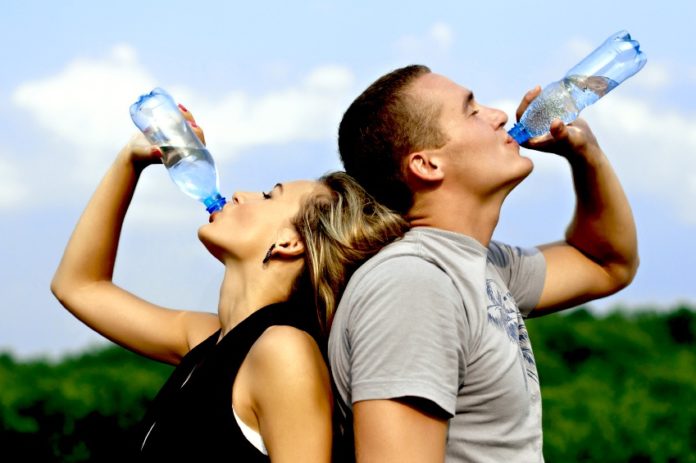The Importance of hydration essential during exercise. For your performance and more importantly, to prevent diseases related to dehydration in athletes. A disease that can cause fatigue, headaches, impair your coordination, and cause muscle cramps. Other heat-related, such as heat exhaustion and heat stroke disease, have more serious consequences. Riders must pay attention to what and how many drinks can drink before, during and after exercise.
Contents
Hydrate Before The Race
If you make a long jog (more than 8 to 12km), it is the importance of hydration to ensure that you are well hydrated during the few days preceding your workout jogging. To ensure good hydration of the body, if your urine is very yellow, drink water at least six times a day. For a few days before your long jogging (or running), drink plenty of water and avoid especially spirits. Not only alcohol dehydrates you, but it can also prevent you from sleeping well. This is not a good idea to run with a hangover because you’ll probably be very dehydrated when you start running.
The Importance of Hydration
One hour before start jogging, try to drink about ½ liters of water, juice or other sports drinks without caffeine. Stop drinking at this point, so you avoid stopping to use the restroom during your run. To make sure you are well hydrated before you start the race, you can drink 1 or 2 small to water just before starting.
Drink During the Race
Current recommendations about hydration during exercise is very simple – try to drink when thirsty. Scientific evidence indicates that drinking when you are thirsty can help prevent dehydration which can lead to hyponatremia (low sodium levels in the blood due to abnormal fluid retention).
If you are looking for a general rule for hydration during your runs: You should take between 1/2 and L 1 L of fluid every 20 minutes during your runs. Athletes who run faster (1 mile in less than 7 minutes) should drink between 1Litres 1.5 Liters every 20 minutes. During workouts that exceed 90 minutes, drink sports drinks (Gatorade, for example) to replace lost sodium and other minerals. Carbohydrates and electrolytes in the sports drink also help your body to absorb liquids quickly.
If you do not have access to water on your route, you have to carry your own drinks with you. Some carriers of liquid that you can use while you run. However, if you run in a race, you should not have to carry your own drinks as they should be throughout the course.
Hydration After Exercise
Do not forget to rehydrate with water or a sports drink after your run. You should drink 1 to 1.5 liters, of water for every pound lost. If your urine is dark yellow after your run, you need to keep rehydrating. It must be a lighter color.
Determine Your Sweat Rate
The above guidelines are the basic rules, but it is important to remember that the quantities need vary from a person other al. Because some people sweat more than others. To determine the amount of liquid to be taken during a race or a long jog, you must know your sweat rate, which can vary between 1-4 liters per hour. Weigh yourself naked before your workout and again after. A 500g weight loss is equal to ½ liter of water loss. Calculate your sweat rate, and use it to determine your fluid needs during your endurance exercises. For example, if you lose 1 kg for one hour race, or 1 liter or 32 oz. Thus, you need to (8 onces-1/4L) of water or sports drink every 15 minutes. A put into consideration the weather conditions that day and keep in mind that you may need to adjust your water consumption if the conditions are different. You can test the rate of transpiration another day to see how different conditions affect your sweat rate.



